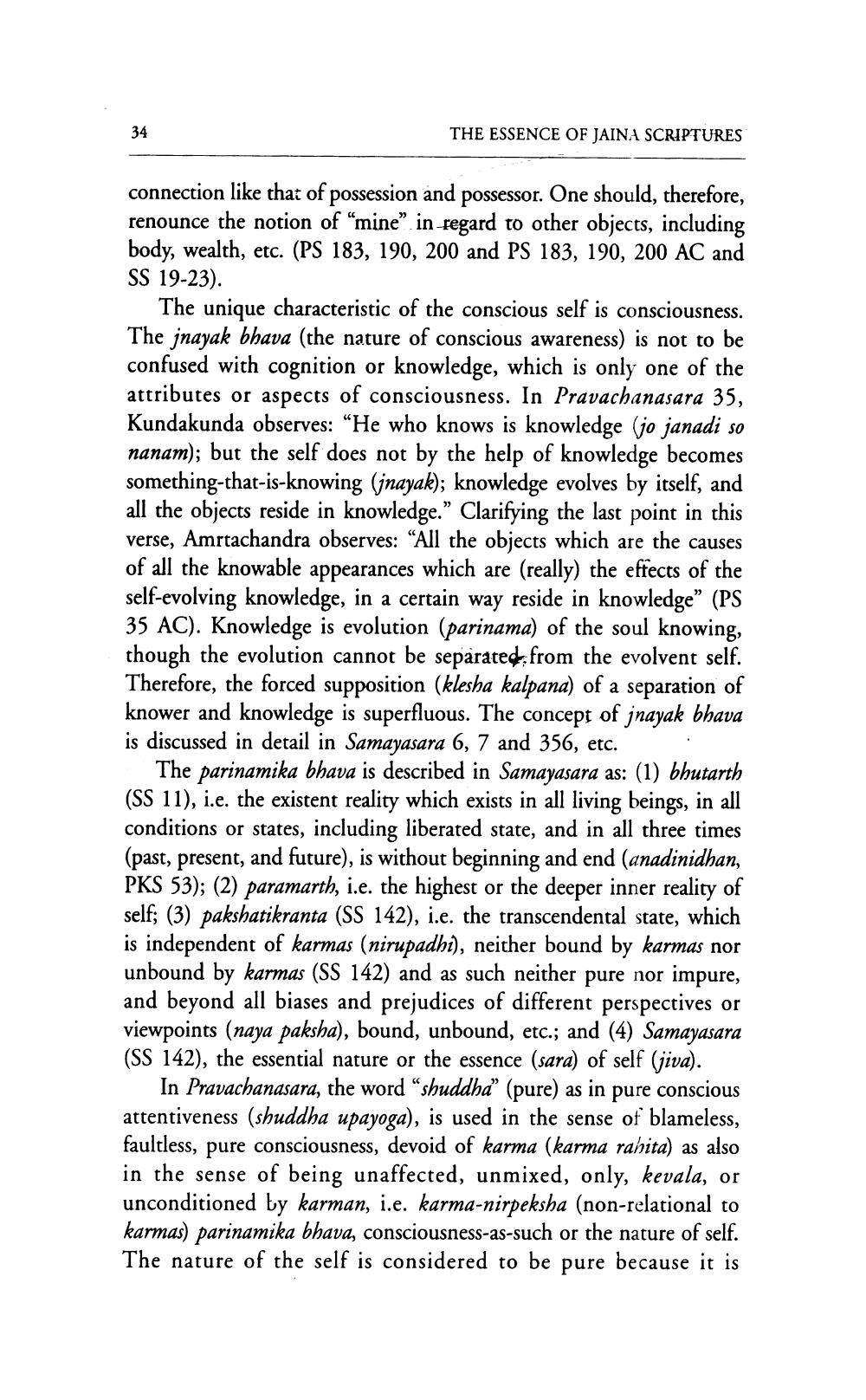________________
34
THE ESSENCE OF JAINA SCRIPTURES
connection like that of possession and possessor. One should, therefore, renounce the notion of “mine” in regard to other objects, including body, wealth, etc. (PS 183, 190, 200 and PS 183, 190, 200 AC and SS 19-23).
The unique characteristic of the conscious self is consciousness. The jnayak bhava (the nature of conscious awareness) is not to be confused with cognition or knowledge, which is only one of the attributes or aspects of consciousness. In Pravachanasara 35, Kundakunda observes: “He who knows is knowledge (jo janadi so nanam); but the self does not by the help of knowledge becomes something-that-is-knowing (inayak); knowledge evolves by itself, and all the objects reside in knowledge.” Clarifying the last point in this verse, Amrtachandra observes: “All the objects which are the causes of all the knowable appearances which are (really) the effects of the self-evolving knowledge, in a certain way reside in knowledge” (PS 35 AC). Knowledge is evolution (parinama) of the soul knowing, though the evolution cannot be separated from the evolvent self. Therefore, the forced supposition (klesha kalpana) of a separation of knower and knowledge is superfluous. The concept of jnayak bhava is discussed in detail in Samayasara 6, 7 and 356, etc. .
The parinamika bhava is described in Samayasara as: (1) bhutarth (SS 11), i.e. the existent reality which exists in all living beings, in all conditions or states, including liberated state, and in all three times (past, present, and future), is without beginning and end (anadinidhan, PKS 53); (2) paramarth, i.e. the highest or the deeper inner reality of self; (3) pakshatikranta (SS 142), i.e. the transcendental state, which is independent of karmas (nirupadhi), neither bound by karmas nor unbound by karmas (SS 142) and as such neither pure nor impure, and beyond all biases and prejudices of different perspectives or viewpoints (naya paksha), bound, unbound, etc.; and (4) Samayasara (SS 142), the essential nature or the essence (sara) of self (jiva).
In Pravachanasara, the word “shuddha” (pure) as in pure conscious attentiveness (shuddha upayoga), is used in the sense of blameless, faultless, pure consciousness, devoid of karma (karma rahita) as also in the sense of being unaffected, unmixed, only, kevala, or unconditioned by karman, i.e. karma-nirpeksha (non-relational to karmas) parinamika bhava, consciousness-as-such or the nature of self. The nature of the self is considered to be pure because it is




